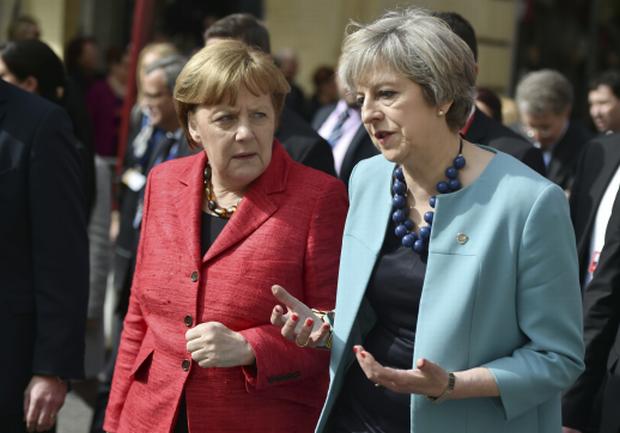CNBC: Europe’s banks brace for a huge overhaul that throws open the doors to their data
By: Ryan Browne
Banks have long been at an advantage when it comes to data on their customers.
From current accounts to credit cards, established lenders have access to vast amounts of information that financial technology (fintech) competitors could only dream of.
In Europe, that could all be about to change.
On January 8, banks operating in the European Union will be forced to open up their customer data to third party firms — that is, when customers give consent.
EU lawmakers hope that the introduction of the revised Payment Services Directive (PSD2) will give non-banking firms the chance to compete with banks in the payments business and give consumers more choice over financial products and services.
Britain’s Competition and Markets Authority (CMA) has set out similar plans to let customers share their data with other banks and third parties. With customer consent, U.K. banks will be required to give authorized third-party firms access to current account data.
Those regulations form part of a conceptual transition known as “open banking.” Under an open banking framework, proponents say, non-banking firms — from corporations as big as Amazon and IBM to start-ups — would be able create new financial products by utilizing the data of banks.
What does it mean for banks?
Banks will be required to build application programming interfaces (APIs) — sets of code that give third parties secure access to their back-end data.
Those APIs serve as channels for developers to get to the data and build their own products and services around it. Such information could serve as a tool to understand things such as customers’ spending habits or credit history, and could lead to the creation of new services.
“In a world of open banking, the customer can choose a provider in each part of the value chain. And each bank has to participate in the value chain as an earners’ right to be there,” Anne Boden, co-founder and chief executive of U.K. mobile-only bank Starling, told CNBC in an interview earlier this year.
Boden added: “You can’t just assume you’re going to have the end-to-end value chain. Barclays and HSBC and RBS, at the moment own everything in that value chain — the app, the back-end, they sell other products. In a world where everybody earns their right, you could have the app from HSBC and the back-end from Barclays.”
Some European lenders are giving early signals as to what a post-PSD2 world will look like.
Spain’s BBVA, Denmark’s Saxo Bank, Nordic lender Nordea and Ireland’s Ulster Bank have already published open developer portals ahead of the EU legislation.
HSBC has also made early moves toward meeting the incoming rules. In October, the bank launched a beta version of an app that lets customers see all of their bank accounts — including those from competitors — on one screen.
That development — known as “account aggregation” — is set to be a key component of open banking, encouraging collaboration rather than competition.
“I am cautiously encouraged by some of the progress we are starting to see around adoption (of) open banking-style principles by both emerging and existing financial institutions generally — banks or otherwise,” Iain McDougall, U.K. manager at fintech firm Stripe, told CNBC.
McDougall said that commentators heralding the end of banks are misguided. “We certainly don’t see it that way,” he said.
What does it mean for tech firms?
Dozens of fintech firms across Europe are set to benefit from the updated EU directive, as banks’ data will let them create new products.
Several small lenders set up with the aim of competing with larger institutions are hoping to take advantage of the move toward a more open data infrastructure. U.K. firms Starling and Monzo, for instance, are want to make banking more like a “marketplace,” by connecting consumers with a number of products and services — including those from other providers — within their apps.
“Where we’re going longer term is in marketplace banking, where we’re trying to build Monzo into a control center, into a dashboard, a marketplace,” Tom Blomfield, co-founder and chief executive of Monzo, told CNBC.
“So we do the day-to-day money management, but say for example you want a mortgage, that’s not something we would provide,” he said, “so actually we’ll offer mortgages from other banks on our platform.”
Another fintech company, MarketInvoice, has completely shifted its business model, changing from a digital invoice service into a lender on the back of the EU regulation. Its CEO and co-founder Anil Stocker said PSD2 would let it access data on small businesses and use tech advances like artificial intelligence to enhance credit ratings.
“I think the banks are starting to realize that this world they’ve had guarded around customer data for so long, now it’s starting to open up,” Stocker said in an interview at the time.
“Once you get into an open banking world, when you don’t actually have to be a bank and you can manage a big balance sheet and have all the regulation that goes with it, it changes the game.”
Some believe that tech giants such as Facebook, Amazon and IBM could be primed to disrupt banking, especially once lenders are forced to open their data vaults to tech firms.
Antony Jenkins, who served as the CEO of Barclays from 2012 until 2015, said it was uncertain as to whether a tech giant or small fintech firm was more likely to benefit the most from open banking.
“I think it’s highly unpredictable,” Jenkins said. “What is certain is there is going to be disruption.”
Jenkins, who is now the founder and CEO of fintech start-up 10x Future Technologies, said that data junkies will be the biggest beneficiaries.
“All financial services products are just data. So companies that are very good at managing data are advantaged in this space. I would also say that once you get into an open banking world, when you don’t actually have to be a bank and you can manage a big balance sheet and have all the regulation that goes with it, it changes the game.”
He added: “That disruption could come from a fintech company, it could come from a tech company with really good customer relationships and a really good understanding of how to manage data.”
Hurdles
Some worry that banks will be slow to respond, and that some will be reluctant to comply.
“Implementing open banking and making this happen is not something overnight. It’s a tough journey for everybody,” Starling’s Boden said.
Indeed, the transition toward PSD2 has not been without friction.
In May, several fintech firms and lobbyists moved to fend off plans by the European Banking Authority to water down its open banking rules by banning a technique known as “screen scraping” — essentially copying data from one interface over to another.
“We saw the big banks suing start-ups like ours, trying to block them by any means.”
And in October, European authorities raided the offices of banking groups in multiple EU countries because they allegedly tried to prevent fintech firms from gaining access to customers’ account data.
“In the U.K., France and other markets, we saw the big banks suing start-ups like ours, trying to block them by any means,” Daniel Kjellen, founder and chief executive of fintech start-up Tink, told CNBC.
“I think that PSD2 is no driving force in this; consumer need is the driving force. And rather the lack of regulation has been an obstacle.”
Lenders in the continent pride themselves on good customer relationships that differentiate them from rising challengers.
Raman Bhatia, European digital chief at HSBC, told CNBC in an interview earlier this year that the bank benefited from its history and that customers trusted the lender.
He said that HSBC was prepared for the regulatory shift in 2018, and that he didn’t fear an “existential threat” from fintech competitors.
“It’s very clear to us at HSBC that we have to open up our architecture one way or the other,” Bhatia said. “The open banking regulation in the U.K. and PSD2 broadly in Europe is acting as a forcing mechanism and as a catalyst for us to explore our transaction data with third parties which we are in the middle of. We are making sure the architecture for the program is ready when the banking regulation comes in within the next year.”
But following Bhatia’s comments, it was revealed that HSBC, along with a number of other British banks including Barclays, RBS and Santander, would miss the deadline for the adoption of the CMA’s open banking rules. They were each granted extra time by the regulator.
“It’s just unclear how PSD2 is going to roll out in January. Is it going to be smooth or bumpy? We don’t quite know yet. So I think we’ll play it by ear.”
A spokesperson for HSBC U.K. said the financial giant “is committed to delivering open banking, which is a real opportunity to increase the range of financial services available to consumers. The U.K. is the first market in the world to implement these significant IT and infrastructure changes, and along with other banks, we are working closely with the regulators to complete the testing necessary for a smooth and secure open banking implementation next year.”
Monzo’s Blomfield said it’s still unpredictable how exactly PSD2 will look. On the subject of compiling all of a customer’s bank accounts on one app, Blomfield said that he and Monzo’s co-founders were considering integrating the feature, but that they would take a wait-and-see approach.
“I think it’s a huge opportunity and one we’re really reluctant to miss,” he said. “It’s just unclear how PSD2 is going to roll out in January. Is it going to be smooth or bumpy? We don’t quite know yet. So I think we’ll play it by ear.”









